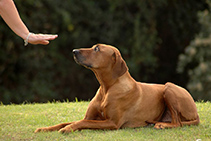
Just like humans, animals can experience anxiety. Anxiety can affect all breeds, but each pet may behave differently due to various circumstances. If not curbed, it can lead to anxiety disorders that can cause behavioral problems that lead to health problems. To deal with pet anxiety, explore these tips for helping your pet cope.
Causes of Pet Anxiety
The common causes of pet anxiety are fear, separation, and aging. Fear-related anxiety can be due to loud noises, strange environments, people or animals, and other visual stimuli. Some pets can fear car rides, thunderstorms, or even wood floors.
Separation anxiety occurs when pets are unable to cope when left alone. When separated from family, pets may exhibit undesirable behaviors such as barking, destroying furniture, and urinating in the house. Age-related anxiety is associated with cognitive dysfunction, and it affects older animals.
Symptoms of Pet Anxiety
Some symptoms can indicate your dog suffers from anxiety. The symptoms include:
Aggression
Destructive behavior
Excessive drooling
Panting
Urination or defecation in the house
Depression
Excessive barking
Pacing or restlessness
Compulsive or repetitive behavior
When Pet Anxiety Occurs
Some symptoms of anxiety result from particular events and are temporary. When the events are recurrent, they can result in serious issues. Aggression is the most dangerous form of anxiety and can be directed toward humans or other animals.
It is vital to keep the dog from harming others. Barking and growling can cause undesirable situations. When pets experience awareness, memory, perception, and learning issues, it can cause anxiety and confusion.
Dealing With Pet Anxiety
If your pet is experiencing anxiety, contact your vet. The vet will discuss possible triggers and causes and help determine if the condition is serious.
The vet will also determine if the anxiety may be due to a medical condition. If anxiety is situational, it will pass after removing the trigger. If it is overwhelming, the vet will recommend treatment that may include training, preventive strategies, and medications.
Treatment Options for Anxiety
Strategies that help deal with pet anxiety include:
Training and counterconditioning
Anxiety medications or natural therapies
Use of CBD oil - Consult your veterinarian before use
Regular exercises and nutrition for proper mental and physical well-being
Avoid situations that trigger anxiety
It can be hard to deal with your pet’s anxiety. However, there are things that you can do to prevent anxiety-related issues. Learn how to read your pet’s body language when they are getting anxious.
Proper socialization habits can prevent anxiety and help your pet be well-adjusted. Obedience training can help prevent and manage a pet’s anxiety. If your pet is diagnosed with anxiety, situation avoidance can prevent stress symptoms.
If you cannot avoid the source of the anxiety, use preventive measures such as harnesses and leashes. As a pet owner, you must understand the issues surrounding anxiety. Consult your vet if you are worried your pet may be overly anxious.
For more on dealing with pet anxiety and tips for helping your pet cope, contact True Animal Vet at our office in The Woodlands, Texas. Call (281) 867-5968 or text (281) 916-3282 to book an appointment today.










